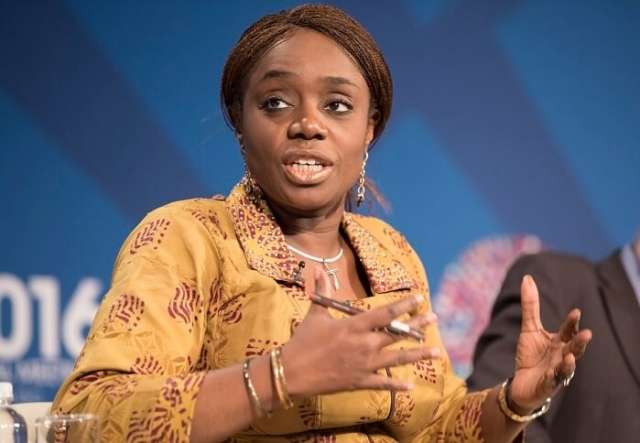The Minister of Finance, Mrs Kemi Adeosun says solving the power sector challenges in Nigeria is a top priority of the government to help improve the economy.
She said this on Thursday in Abuja, when the executive directors of the World Bank Group paid her a courtesy visit.
According to Adeosun, the government views the economic stability of Nigeria as very important, the reason why measures have been taken to ensure the nation exited recession.
“One thing that we think is a game changer in terms of the economy regarding industrial growth and improving the standard of living and quality of life is solving the power problem.
“It is a great priority to us and we welcome you to some of the power initiatives that we are driving in the power sector.
“There are two things involved, one is to accelerate that growth and then to make the growth count and make people feel it.
“That is where lifting people out of poverty and creating employment are very critical and crucial to us.”
She said the growth was hinged on improving expenditure on infrastructure.
According to her, there is a focus on the area of ease of doing business to get the private sector energised and give them the support they needed.
She said the other big change the government was trying to drive was improving the size, efficiency and effectiveness of the government.
“At the percentage of Gross Domestic Product (GDP), our government budget size is low for the size of our economy.
“That accounts for some of the challenges you see in the volume of expenditure in things like education and health, and these are functions of the fact that our budget size is low.
“This in turn is a function of the fact that we are not mobilising adequate revenue like domestic revenues in the area of tax.”
She, however, said the number of tax payers had increased.
“The number of tax payers which is measured by the number of Tax Identification Number (TIN) issued has now crossed 19 million, from 13 million when we came in 2015 and this is really commendable.”
She said there were 65 million economic reactive people in Nigeria, so there was still a long way to go, but that issue of tax payment had been put on the front page of the narrative.
Adeosun said the issue of tax was now a popular discussion in a country where people were challenged and felt that the services they expected from paying taxes were not necessarily available.
Adeosun, however, urged Nigerians to trust the Federal Government, promising that it would deliver on infrastructure and services if they paid their taxes.
She explained that it had shown that commitment by increasing expenditure on capital projects.
On the increase in crude oil prices globally, she said the government was optimistic and vigilant and would keep on working.
“This period is relatively good for oil prices, we are not resting on our laurels because we see this as temporary.
“We are not getting complacent around the increase in oil price but we will focus on the fundamentals that will drive this economy.
“So, it is not about the amount of money that comes in but how effectively we are able as a government to convert it for the good of our people.
“This is really where the work we are doing is.”
Dr Patrizio Pagano, spokesperson of the World Bank Group, said the visit would address several things.
He said the priorities of the Federal Government were to ensure growth and to understand how it could be made known.
Pagano said the World Bank was working to eradicate poverty and make growth increase as much as possible.
He said the nation had to understand how important the private sector was, “as entrepreneurs are necessary to grow the economy’’.
The team comprised executive directors of the bank from 96 countries. (NAN)



Leave a Reply